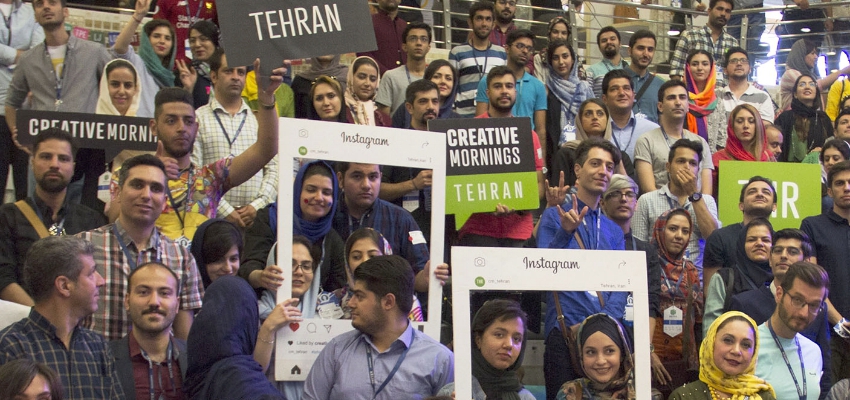Monday 30 July 2018 - 15:24
Story Code : 313908
Encouraged by government, Iranian entrepreneurs dream of 'Smart Cities'
Recently, the Iranian government has also expressed greater interest in bringing smart cities technologies to the country. Spearheaded by the Ministry of Information and Communication Technology and the Ministry of Roads and Urban Development, the Iranian government is promoting the adoption of smart city technologies and holding various events and conferences to increase awareness among government stakeholders and the business community. Iranian authorities are drawing inspiration from successful cities including Berlin and Seoul in order to adapt proven approaches to suit the Iranian cities.
With almost 120 percent internet penetration rate in Tehran, 110 percent in Mazandaran, 100 percent in Qom, 96 percent in Isfahan, and 95 percent in Khuzestan provinces, Iran already has the essential infrastructure to become �smart.� At a consumer level, Iran has 40 million smartphone users of which 28 million are mobile internet subscribers. Iran�s consumer technology and communications companies are at the forefront of smart city innovation.
MTN-Irancell, Iran�s second largest mobile network provider, is actively promoting the transformation of Iranian cities. Irancell provides relevant equipment and sensors for development of smart cities and is seeking to rollout efficient and reliable systems that will enable municipal governments to collect and manage data securely and transparently. Irancell�s technologies will allow governments to monitor, analyze, manage, and set alerts for selected urban parameters.
To prove its technologies, Irancell�launched a pilot program�in Khuzestan province in February 2017. Under this plan, 5,000 low-power wide-area network technology gas meters were installed in the province. In March 2017, Irancell also invested in�Anzali free trade zone�to implement systems for waste management, landscape watering, street lighting, parking spot management and air quality checks.
Another active company in the field is Iranian firm Nobka, which seeks to accelerate the adoption of smart city technologies in the country. One of Nobka�s projects is production of�smart portable hospitals, using converted buses and shipping containers, which can support emergency responses to nature disasters. These portable hospitals use smart lighting and ventilation systems and telemedicine software to help the injured in an emergency.
Nobka is also using smart city technologies to support tourism in Gilan Province. The company has installed solar-powered Wi-Fi hotspots and smart lighting systems at Lahijan Lake. It has also used augmented reality (AR) and virtual reality (VR) to promote tourism to simulate a visit to Lounak Waterfall.
Iran�s capital, Tehran, which is approaching "megacity" status, is the primary target for smart city transformation as the government seeks to address heavy traffic jams, extreme air pollution, high energy consumption, among other challenges. The municipality of Tehran, has been�actively promoting�the topic, in part by supporting startups which are active in the field.
As part of its promotion efforts,�Tehran Municipality, in cooperation with Pardis Technology Park, sponsored the 7th International Innovation and Technology Exhibition (INOTEX 2018). Moreover, the Tehran Municipality ICT Organization regularly holds workshops to educate the policy makers on smart cities and organizes competitions to drive innovation. The organization has also�signed an agreement�with China Electronics Technology Group Corporation (CETC) to spur adoption of smart city technologies. CETC will provide services including consulting, project design and research and development.
Following the withdrawal of the US from the Joint Comprehensive Plan of Action (JCPOA), the European governments have sought to support the Iran deal and sustain economic ties between the European and Iranian companies further. Cooperation around smart cities could be an ideal area of focus.
European companies and institutions have demonstrated interest in supporting smart city transformations in Iran. Austrian Institute of Technology (AIT)�held a workshop�in Vienna in June 2017 on �smart city development� for officials from the city of Bushehr, which was selected as a pilot smart city project by the Iranian government. This workshop provided training on topics including the application of ICT for smart cities, urban governance and big data exploration.
While the return of US sanctions poses new challenges for European investment, such educational exchanges should be sustained. European companies and institutions should continue to engage with the Iranian entrepreneurs and urban planners in a non-political environment,�demonstrating their goodwill, sharing best-practices, and supporting Iranian dreams of smart cities.
# Tags











